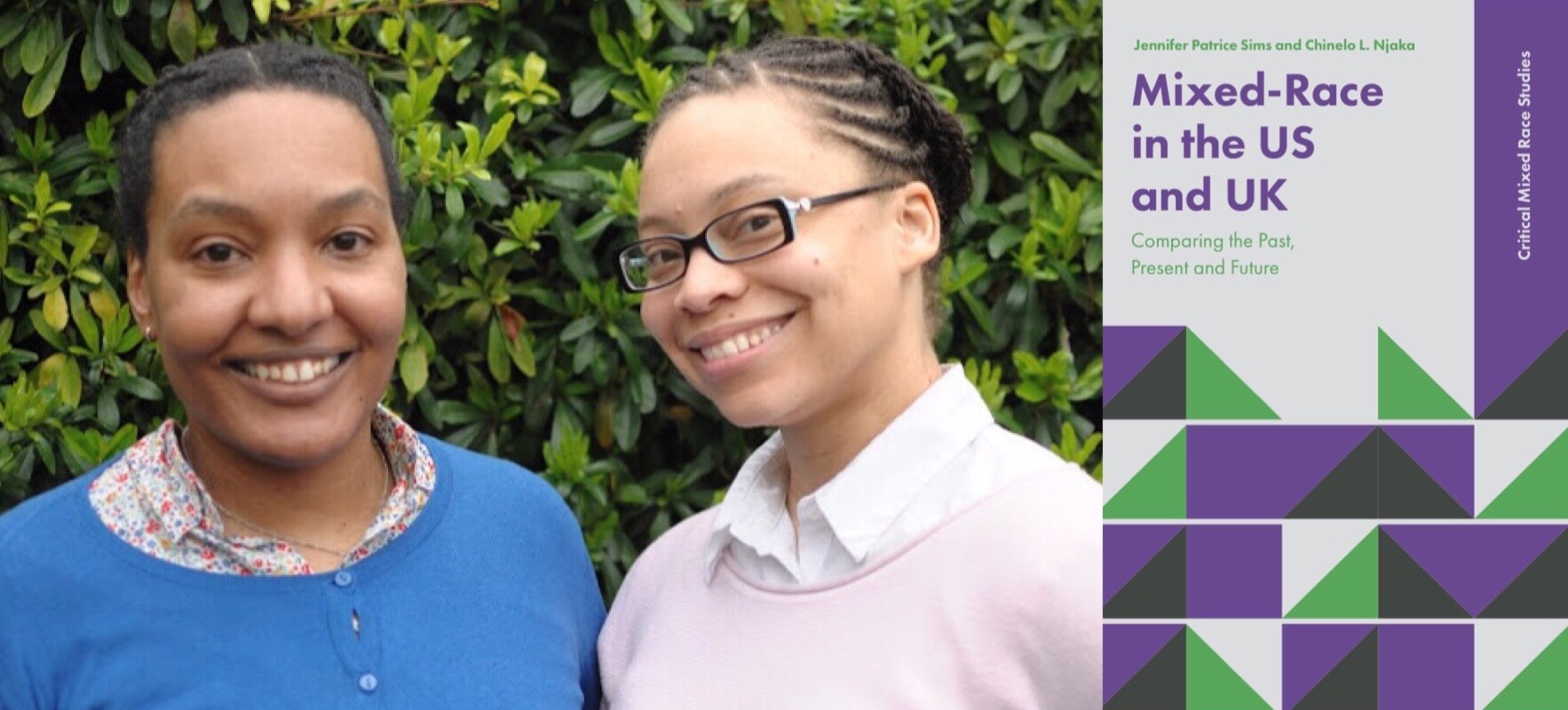Dr. Jennifer Sims wins 2020 Mid-South Sociological Association Book AwardPosted in Articles, Campus Life, Media Archive, Social Science, United Kingdom, United States on 2020-11-05 01:27Z by Steven |
Dr. Jennifer Sims wins 2020 Mid-South Sociological Association Book Award
University of Alabama in Huntsville News
2020-10-19
 Pictured Dr. Chinelo L. Njaka and Dr. Jennifer Sims with Bookcover Photo Credit Paul Wright |
UAH Assistant Professor Dr. Jennifer Patrice Sims has won the 2020 Stanford M. Lyman Distinguished Book Award for her co-authored book Mixed-Race in the US and UK: Comparing the Past, Present, and Future (Emerald Publishing, 2020). The award is given annually by the Mid-South Sociological Association (MSSA) to “honor MSSA members whose recently published work makes a significant contribution to the field of sociology.”
The Association held its annual conference virtually October 14-17. Dr. Andrea Hunt, Associate Professor of Sociology at the University of North Alabama and Chair of this year’s Book Award Selection Committee, presented the award at a virtual ceremony Friday evening. Dr. Hunt noted that six books were nominated this year, which she said is the largest amount received in the last several years. She described the 2020 nominations as “very very competitive. The scores were very close. In fact, there was a 0.28 difference between the first and second place scores.”
Speaking of Dr. Sims’ Mixed-Race in the US and UK specifically, Dr. Hunt quoted one member of the Selection Committee as saying the book “helps to open an emerging area in the study of race and demography and has created a new and interesting area for social scientists that will guide research for decades.”…
Read the entire article here.




